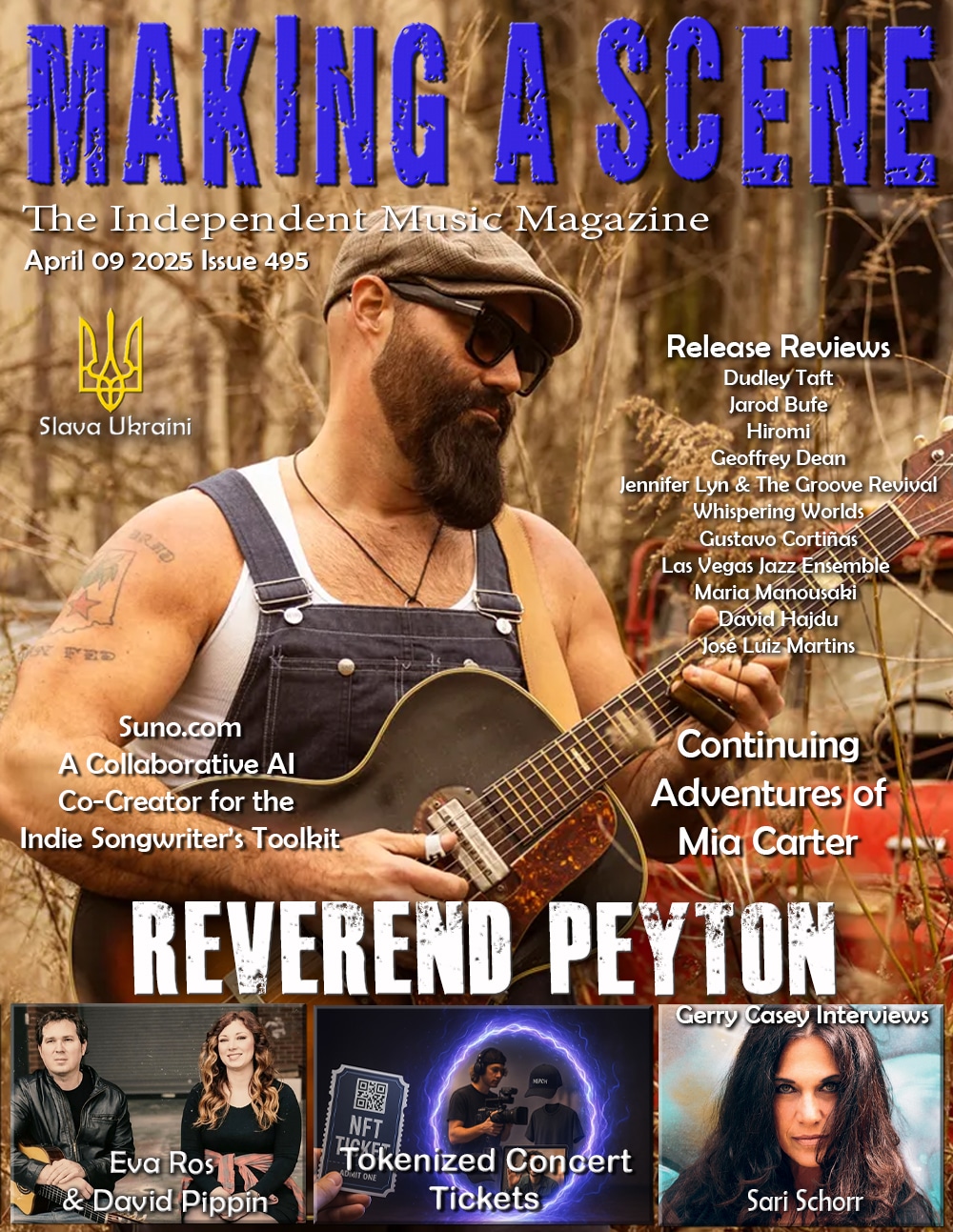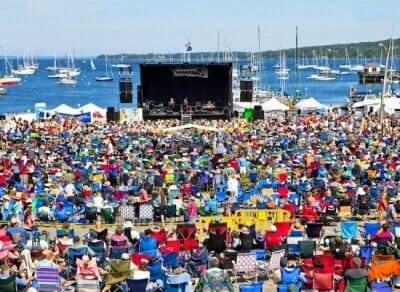Meet Paul “Mr. Blues” Benjamin “Chairman of the Board” of the Blues Foundation
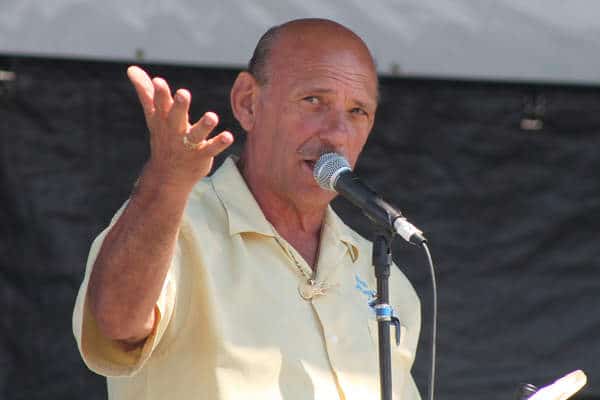
An Exclusive Interview with Paul Benjamin – “Chairman of the Board” of the Blues Foundation by Richard Lhommedieu on Mixcloud
The Board of Directors for any non for profit organization is the driving force in determining the direction the organization takes. The awarding of the position of “Chairman of the Board” can be the most important decision any board can make in showing the world what direction that they are going. The Chairman is the spokesman and the face of the board of directors. The Blues foundation has recently voted to award this all important position to Paul “Mr. Blues” Benjamin!
Paul Benjamin has been a champion of the blues for most of his life. As a promoter he has provided touring artists a premiere venue in Rockland Maine by presenting a long running Monday Night Blues series at the Time Out Pub! For a touring artist having a venue that gives you a room to sleep in, a good meal and good pay on an off night can make or break a tour. Paul understands this and as a result the long running Monday Night Blues Series draws patrons from all over, and attracts the top touring Blues artists in the country. Paul Benjamin has also created the hugely successful North Atlanta Blues Festival as well as consulting and working with several other festivals around the country. Paul’s involvement with the blues foundation is a long running one as well. Having served on the board of directors before, he is back now to lead the Blues Foundation into the future. Paul Benjamin IS a force within the blues community and it is going to be very exciting to see him bring his experience and drive to Blues Foundation as it moves towards the future! Listen to my Interview with Paul as we talk about the future of the foundation and the Future of the Blues.
The North Atlantic Blues Festival is an annual two-day blues music festival featuring national blues performers and considered one of the most prestigious on the East Coast. The festival is held at the Public Landing in Rockland, Maine, overlooking the picturesque Rockland Harbor. Some of the top names in blues music have been featured at this prestigious East Coast festival. In addition to all day live entertainment, the festival has vendors selling a wide array of food, drinks and crafts. Saturday evening Main Street is closed to traffic for the NABF Club Crawl. Attendees of legal age, wearing their wristband from the festival are allowed free admission to the many bars and restaurants featuring many of the top regional blues performers. There are also bands performing on Main Street for all ages at no charge.
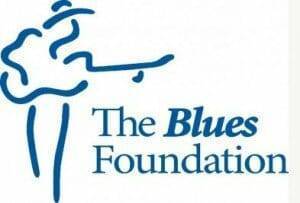
Blues Foundation was founded in 1980 and is dedicated to preserving blues music history, celebrating recording and performance excellence, supporting blues education, and ensuring blues music’s future.
The foundation has 4,500 individual members and 200 affiliated local blues societies that represent another 50,000 fans and professionals around the world.
Blues Hall of Fame
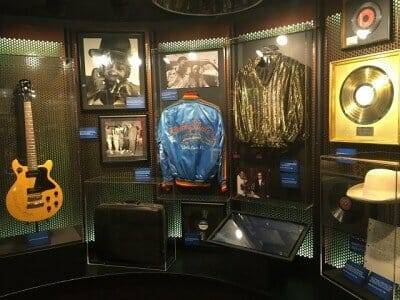
In May of 2015 the Blues Foundation opened a brick and Mortar “Blues Hall of Fame”! From the very beginning in 1980, they began inducting members into this Hall of Fame. Now with a lot of hard work and determination, the Hall of Fame will have a permanent home!
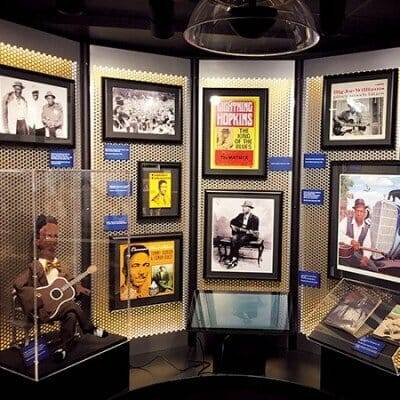
The Blues Hall of Fame is a historical record of those who have made the Blues timeless through performance, documentation, and recording. Since its inception in 1980, The Blues Foundation has inducted new members annually into the Blues Hall of Fame for their historical contribution, impact and overall influence on the Blues. Members are inducted into the Blues Hall of Fame in five categories: Performers, Individuals, Classic of Blues Literature, Classic of Blues Recording (Song), Classic of Blues Recording (Album). Accordingly, individuals, recordings and literature are included in the Blues Hall of Fame.There is no submission or nomination process for induction in to the Blues Hall of Fame. Rather, each year in the fall, a distinguished panel of blues scholars begins the process of discussing who they believe should be given consideration for induction into the Blues Hall of Fame. After some back and forth, they vote in each of the five categories. The number of nominees in a year may vary. With financial support from the Tennessee Arts Commission, noted Blues scholar Jim O’Neal has researched and written a definitive biographical sketch for each of the inductees.
Blues Music Awards
This is the program that started it all. The Blues Foundation started giving this award in 1980 (was called the WC Handy award) and has since become the equivalent award, in the blues genre, as the Country Music Awards and the Grammy’s are to Country and Popular Music. Each year the blues community comes together for an event that attracts Blues Performers, Industry professionals and Fans from all over the world. 2015 will see it’s 36th Blues Music Awards ceremony!
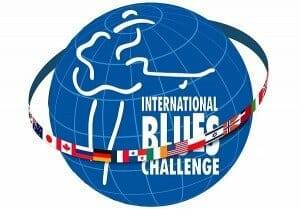
International Blues Challenge
in 1984 The Blues Foundation started the “Amateur Blues Talent Contest”, became the “National Blues Talent Contest” in 1994 and finally becoming the “International Blues Challenge”. This competition has grown over the years to become the showcase for new Independent Blues Talent. Artists like Susan Tedeschi, Michael Burkes, Jarekus Singleton, Larry Garner, Tramped Under Foot, Grady Champion, JPBlues, Homemade Jamz Band, Sean Carney, to name a few, have competed in “International Blues Challenge” over the years. Blues artists and Fans from all over the world converge on Beale Street in Memphis in what is now considered the largest gathering of Blues fans and Independent Blues artists in the world.
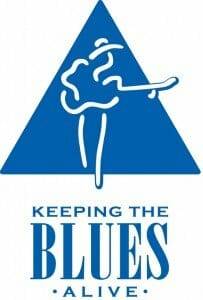
Keeping the Blues Alive Awards
The Blues foundation presents this award to non performing individuals that contribute to “Keeping the Blues Alive”. Noted Authors, Educators, Journalists and those who work behind the scenes. “The KBAs are awarded for the recipients work in the past year but most often reflect a lifetime of work”
Hart Fund

The Blues Foundation has established the HART Fund (Handy Artists Relief Trust) for Blues musicians and their families in financial need due to a broad range of health concerns. The Fund provides for acute, chronic and preventive medical and dental care as well as funeral and burial expenses.
Sound Healthcare
The situation of the music industry’s many self-employed professionals is unique, and their need to access affordable healthcare benefits is great. To address this critical issue for its music industry members, in the summer of 2009, The Blues Foundation joined a number of music associations to partner with Sound Healthcare, providing access to a variety of healthcare benefits and insurance programs to those in need. Also in light of the “Affordable HealthCare Act”, the programs helps musicians navigate and find the right plan for them.
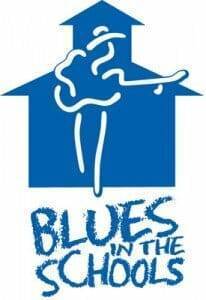
Blues In the Schools (BITS)
In the early 20th Century, W.E.B. Dubois wrote, “The problem of the 20th Century is the problem of the color line.” Through the study of blues traditions in any curriculum, educators can address educational issues like the color line, diversity, multi-culturalism, and interdisciplinary studies in a way that engages all aged students.
At a time when Dubois’ words still echo, an understanding of this truly original American music form allows students to appreciate this and other contributions of African-Americans to the world. The study of the blues is the study of the culture that produced this music. This cultural study is an investment in the human spirit
Studying the blues can give students deeper understanding of the rural and urban African-American culture.
With the exception of Native American music forms, the blues is the first pure American music form to have originated in this country. Coming from the oral traditions of folk music, the blues is the foundation for all other popular music forms students listen to today.
Just as important as understanding the evolution of the musical structure of the blues is understanding the ways blues music expressed individual emotions.
Students can be shown the essential part these rural lyrics played in the African-American oral traditions. Lacking an educational system, these early country blues men and women created beautiful poetry that responded to the conditions of their world. Sometimes the lyrics expressed the anger they could not speak. Other times, they painted a vivid picture of African-American life in those fields.
At the same time, the music incorporated danceable rhythms and so called “blue notes” that could assuage the day’s Jim Crow encounters.
Music reflects the feelings of the times. Through the blues, student listeners can feel what happened in those times and know to apply it to today.

Generation Blues
The Blues Foundation expanded its longstanding Blues in the Schools youth education efforts with a new initiative that began in 2010 entitled Generation Blues. This scholarship program allows qualified applicants under the age of 21 to study their instrument of choice at reputable camps, seminars and workshop programs such as Port Townsend Acoustic Blues Festival, Augusta Heritage Center and Fernando Jones’ Columbia College Blues Camp.
Camps, seminars and workshops attended by Generation Blues scholarship recipients generally take place in the throughout the year in the recipients’ choice of locations. Participants are awarded the scholarships on an annual basis, and participation is open to anyone under the age of 21 and interested in the blues. Applicants must write a letter of intent and provide letters of recommendation. Video submissions are also accepted. The deadline for applications is March 15, 2015.
Blues Foundation board member and leader in the Generation Blues initiative Cassie Taylor notes “this is a wonderful way to ensure the future of the blues by helping young people get the education they need and deserve to help them grow as a blues artist.” Taylor started her career in blues music as a teenager when she toured successfully with her father, trance blues artist Otis Taylor.
Generation Blues joins a number of other successful youth initiatives launched by The Blues Foundation, including the popular Blues in the Schools which supports blues educators by providing a classroom curriculum that incorporates elements of history, math, English, music, and other disciplines as they can relate to the entire blues industry of making and promoting blues music. Youths under age 21 may also take advantage of free individual membership of The Blues Foundation.
By offering individuals up to the age of 21 free membership, the Foundation invites even more young blues lovers to get started on a lifetime of participation in the activities of their local blues society and The Blues Foundation. Generation Blues is one of several new programs announced to further assist blues musicians and those making their careers within the blues music community.
To find out how you can support the Blues Foundation please go to their website www.blues.org and become a member!
Discover more from Making A Scene!
Subscribe to get the latest posts sent to your email.





































